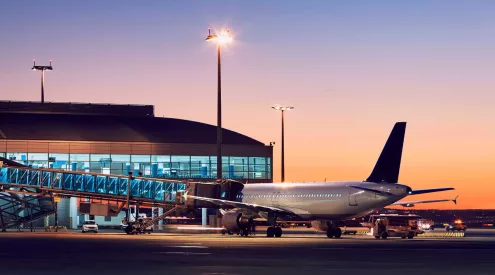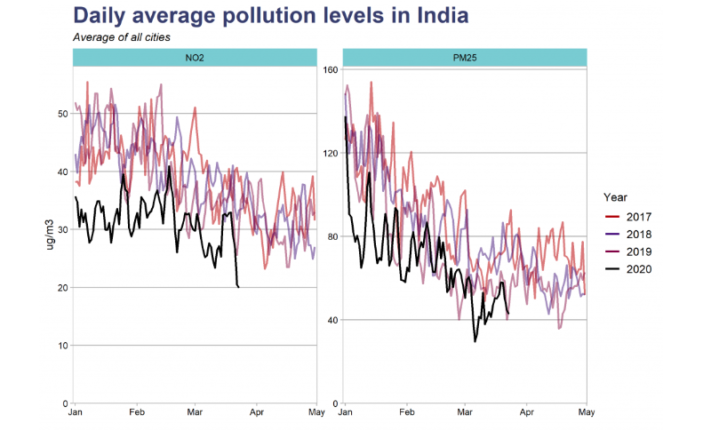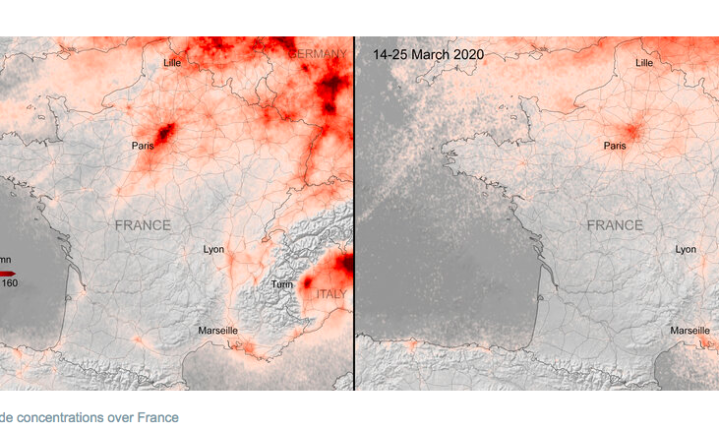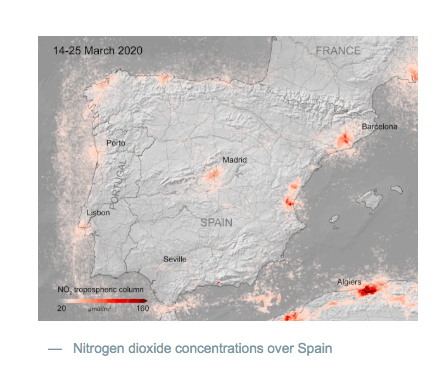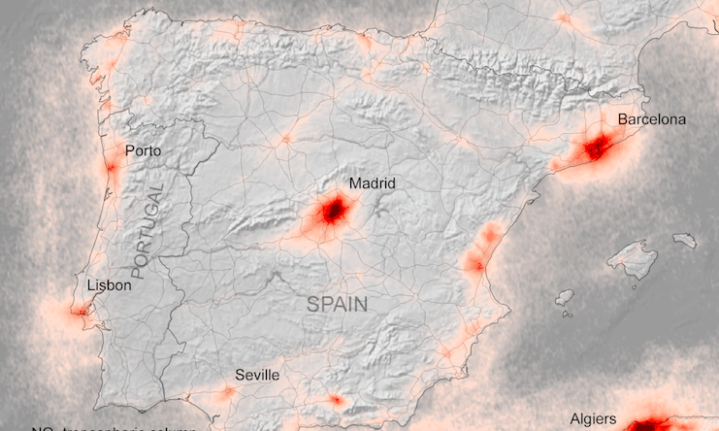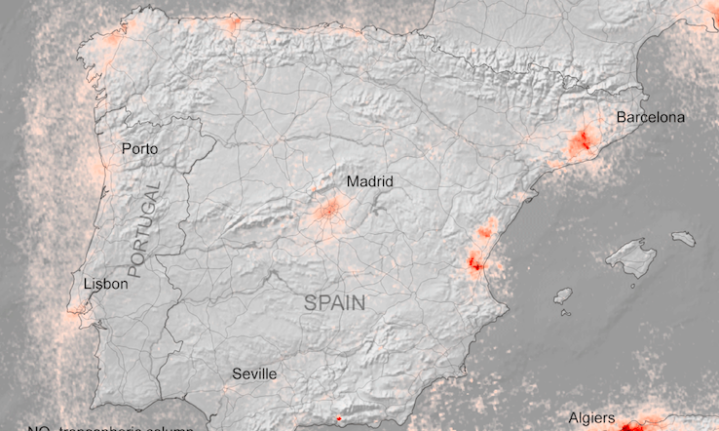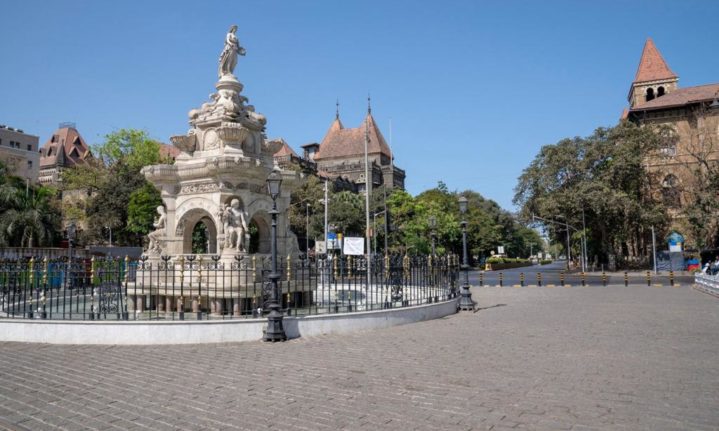India’s government instated a national curfew on Sunday 22 March. As a result, the lowest ever average level of nitrogen dioxide (NO2) pollution for spring was recorded.
According to the Centre for Research and Clean Air, other toxic pollutants, PM2.5 and PM10 also declined. PM2.5 and PM10 are pollutants that have a much longer atmospheric lifetime. Cars are a small contributing factor to their levels.
Probably the first and last time I am seeing Mumbai like this 😮 #Curfew pic.twitter.com/nlviIs46dO
— Surabhi (@Sword_wrap) March 24, 2020
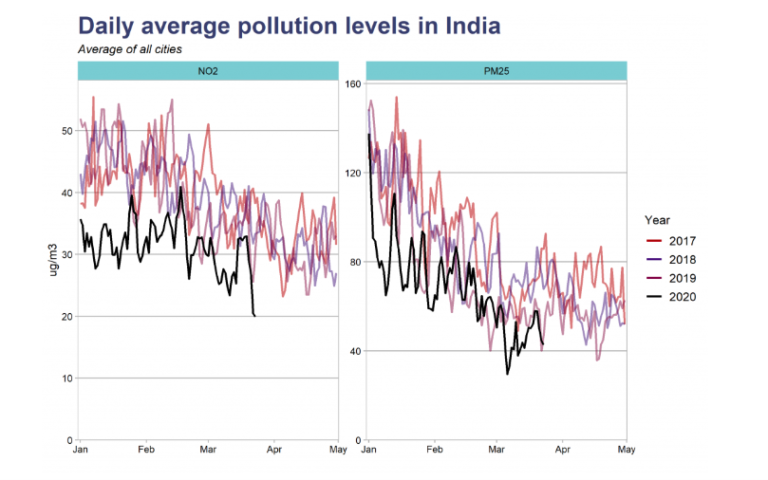
Image: Centre for Research and Clean Air
In a statement, Lauri Myllyvirta and Sunil Dahiya from the Centre for Research and Clean Air said: ‘While air pollution levels in individual cities can vary a lot depending on weather conditions, national-average levels across a landmass of thousands of kilometres are less affected by the vagaries of winds and rains. The national average levels do drop lower in the summer, when average wind speeds are higher and there is more atmospheric mixing, but last Sunday’s reading is the lowest seasonally-adjusted level on record.’
Many countries around the world are experiencing reduced air pollution levels as a result of implementing measures to combat COVID-19.
Using data garnered by the Copernicus Sentinel-5P satellite, the European Space Agency (ESA) was able to determine that, within the first two months of 2020, there had been a sharp drop in emissions of nitrogen dioxide over Italy.
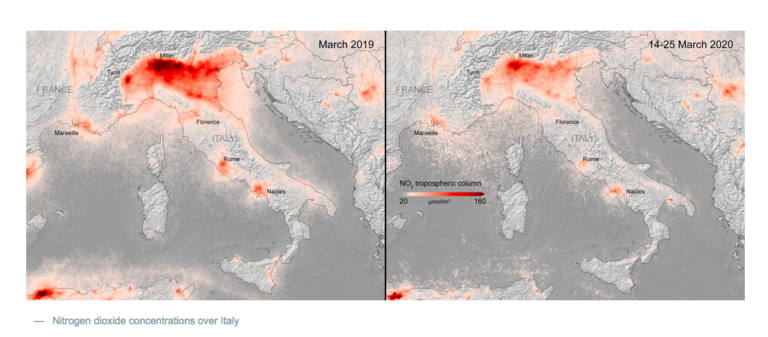
Image: European Space Agency
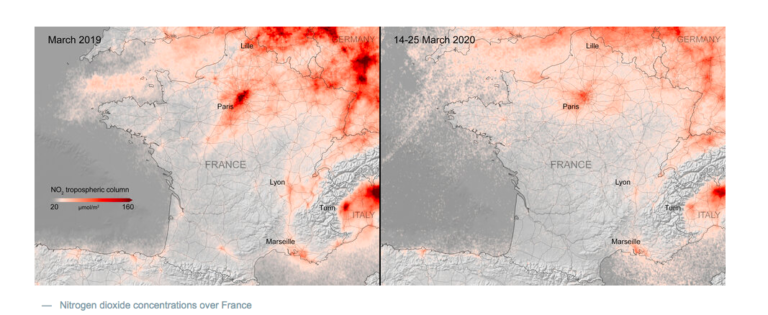
Image: European Space Agency

Image: European Space Agency
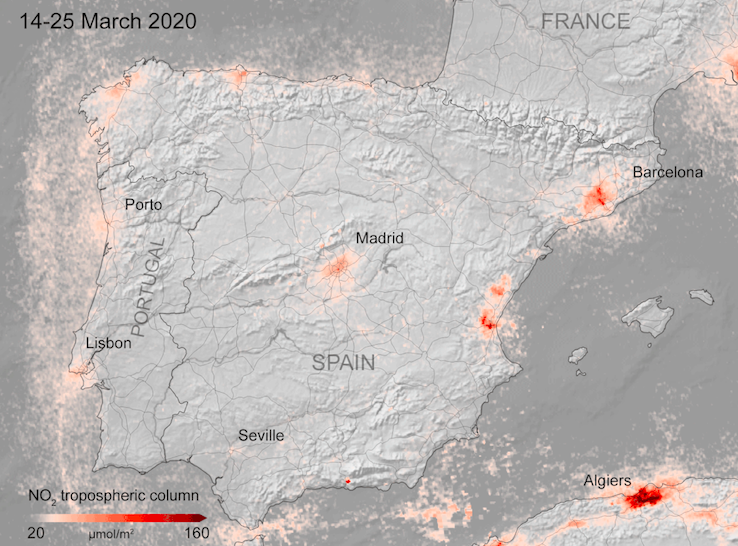
Image: European Space Agency
COVID-19 is a pandemic that has caused widespread suffering and loss of life. The drop in air pollution is an unintended, albeit welcome, result of the measures in place to flatten the curve.
Image: Twitter/@Sword_wrap






